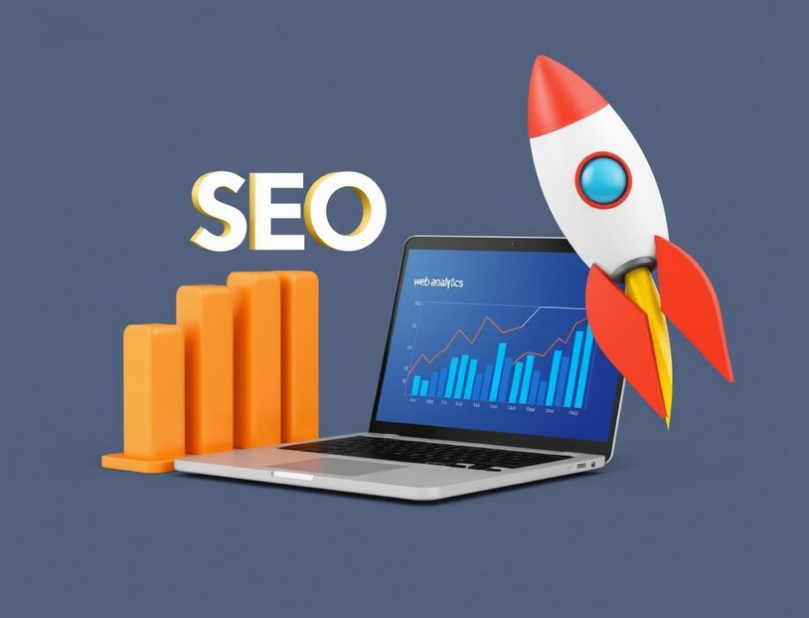Celebrating 14+ years of delivering superb IT services
to businesses worldwide!
Loading speed refers to the amount of time it takes for your website to fully load and display content to users. Users expect websites to load swiftly and smoothly in the contemporary digital environment, where instant results are the new normal. Studies show that even a second of delay in the loading speed of a website can cause decreased user satisfaction. Increased bounce rates and lower conversions. Moreover, search engines like Google prioritize faster websites in their result pages, making loading speed a key factor in search engine rankings.
Loading speed has a significant impact on the user experience, influencing how users recognize and interact with the website. A slow-loading website can cause frustration for the users, increasing the bounce rates as they leave the site for better, faster alternatives. On the other hand, a fast-loading website creates confidence and trust in the users, giving them a positive first impression and encouraging them to explore more and visit more often. A smooth and seamless user experience can increase engagement, encourage frequent visits, and ultimately lead to conversion.
In addition to its impact on the user experience, loading speed can also have a significant impact on search engine optimization. Search engines like Google consider loading speed as a ranking factor, giving preference to fast-loading websites on search engine results pages. Google’s algorithm prioritizes websites with faster loading speeds and a greater user experience, with loading speed being a key indicator of website quality. You can improve your website ranking, increase organic traffic, and attract more potential customers to your website by optimizing it for faster loading speeds.

Optimize Images : Large, unoptimized photos can significantly decrease the speed of your website. Use compressed images to reduce file size without affecting quality, and use responsive images to ensure that the image is displayed appropriately on different devices.
Minimize HTTP Requests : Every element on your website requires an HTTP request to load, whether it is an image, script, or stylesheet. Try to minimize the number of HTTP requests by combining files, reducing the use of external resources, and utilizing browser cache.
Enable Compression : Enable gzip compression to minimize the size of your HTML, CSS, and JavaScript files, allowing for a quick transfer over the internet.
Reduce Server Response Time : Improve server response time by optimizing your server configuration, upgrading to a faster hosting provider, or implementing server-side caching solutions.
Use Content Delivery Networks (CDNs) : CDNs help to reduce latency and improve loading speeds for users in various geographic locations by distributing your website’s content to multiple servers worldwide.
Implement Lazy Loading : Lazy loading delays the loading of unimportant content like images or videos until it is needed, increasing initial page load speed and reducing bandwidth usage.
Minimize and Combine Files : Minimize your HTML, CSS, and JavaScript files by removing unnecessary whitespace, comments, and code, and combine multiple files into a single file to reduce the number of HTTP requests.
Optimize Code : Write clean, efficient code and remove any unimportant or redundant scripts and stylesheets to improve the performance of your website.
Prioritize Above-the-Fold Content : Load essential above-the-fold content first to ensure that users have immediate access to important details, while unimportant contents load in the background.
Monitor and Test Performance : Monitor your website’s performance regularly using tools like Google PageSpeed Insights, GTmetrix, or Pingdom, and conduct performance tests to identify areas for improvement and optimization.
The importance of loading speed cannot be stressed enough in today's digital setting. As users increasingly expect quick access to information and seamless browsing experiences, optimizing your website for faster loading times is important for success. Globosoft, a leading provider of website designing in Ernakulam, understands the importance of this feature and emphasizes the need for businesses to prioritize speed in order to improve user satisfaction and increase online visibility. Businesses can improve their search engine rankings and user experience by boosting the loading speed of their websites, eventually driving growth and success in the competitive online world.

Web design should be three things: human-centered, compelling and future-proof.
Enquire NowGrowth of your business has a lot to deal with tactical and effective SEO.
Enquire NowGive us a hint on what your business stand for and we will develop for you astate-of-the-art..
Enquire NowIn the digital era, Enterprise cloud governance essentiallydeals with applying specific policies ..
Enquire Now